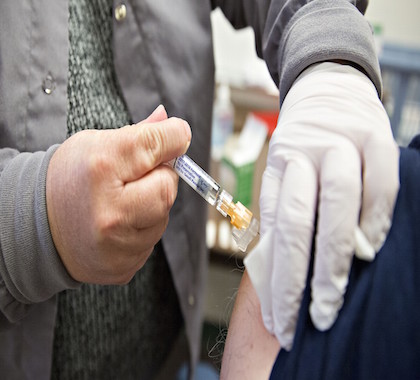The poll, released January 14, reveals a partisan gap when it comes to viewing the health care system as problematic, with those who identify with the Democratic Party more consistently rating the system as having major problems. The Gallup poll found 84 percent of Democrats indicated they believe the system is in crisis, an increase from 76 percent a year ago and 63 percent in 2016.
Republicans were more optimistic about the state of the health care system, with 56 percent saying it had major problems, a decrease from the 71 percent who reported the same a year ago and 80 percent in 2016.
“The difference between the two major parties on this measure was just five percentage points in 2017, Trump’s first year, when 76% of Democrats and 71% of Republicans said healthcare had major problems or was in crisis,” the poll’s news release said. “This expanded to a 28-point gap in 2018, when 84% of Democrats and 56% of Republicans expressed these views – the largest partisan gap on this measure in Gallup’s trend since 2001.”
‘Manufactured Crisis’
Robert Graboyes, senior research fellow at George Mason University’s Mercatus Center, says the U.S. health care system has problems but is not in crisis and the idea of a crisis has been manufactured.
“We have problems, but not a crisis,” Graboyes said. “For a half-century, medical science has churned out an astonishing array of drugs, devices, and procedures—many of which are startlingly expensive to produce. In dollar terms, the potential demand for useful medical services is virtually limitless, and no society on Earth has limitless resources. Hence, in each country, some people fall through the cracks— an American priced out of buying a service, a Canadian waiting months or years for treatment, a British citizen denied treatment by a cash-strapped NHS. America can do better—as can other countries. But sad individual anecdotes, gut-wrenching though they may be, do not constitute a systemic crisis.”
“Americans believe we are in a crisis because journalists and politicians of all stripes tell them around the clock that we are,” Graboyes said. “Both left and right sound alarms and peddle purported cures. One should view both the alarms and the cures with skepticism.”
‘Superb Care’
Graboyes says the U.S. health care situation is actually better than many other countries, and that it’s influenced not only by the efficiency of the sector, but by individual behaviors.
“While it’s easy to cherry pick examples to the contrary, Americans generally get superb care—and they get it in timelier fashion than most,” Graboyes said. “Our health metrics lag in some areas, but those shortcomings stem mostly from factors outside the health care system—individual behavior, social factors, our unique genetic pool, the physical environment. Medical care is a surprisingly modest contributor to overall health. As for costs, Americans spend loads on health care, but again, mostly for reasons outside the health care system.”
More Innovation, Less Regulation
Graboyes says the link between emerging technologies in the health care sector and the cost of care is worth examining because it can provide information on which regulatory burdens should be lifted on innovation.
“Twenty-first century technologies offer the possibility of better health for more people at lower cost,” Graboyes said. “Unfortunately, the U.S has spent a century or more hamstringing the ability of innovators to turn that possibility to reality. Our laws, regulations, and professional norms stifle the innovative process by protecting established producers from competition and by discouraging patients and providers from taking calculated risks. In some areas, policy is changing for the better—greater openness to telemedicine, for example. But it’s certainly not changing fast enough.”
No Crisis, But Fix Needed
Justin Haskins, research fellow and executive editor at The Heartland Institute, which publishes Health Care News, says the health care crisis narrative was used to pass Obamacare, but despite things not being as bad as people were led to believe, free-market policies can make things better.
“One of the best policy pushes the Trump administration has made has surrounded transforming the health care sector into one that embraces the free market, choice, and competition,” Haskins said. “It’s certainly true that the American people were misled into thinking the health care sector, from insurance to quality of care, was broken beyond repair so they would be more amenable to accepting government-controlled health care such as Obamacare. But that doesn’t mean there were areas that needed improvement, and that was even more apparent once Obamacare was declared unconstitutional by the Texas federal court in December 2018.”
Haskins says the free-market reforms the Trump administration has implemented are all good, timely policy changes. “The problems tackled by the reforms embraced by the Trump administration pre-existed Obamacare,” Haskins said.
INTERNET INFO:
Justin McCarthy, “Seven in 10 Maintain Negative View of U.S. Healthcare System,” Gallup News, January 14, 2019: https://news.gallup.com/poll/245873/sevenmaintain-negative-view-healthcaresystem.aspx





